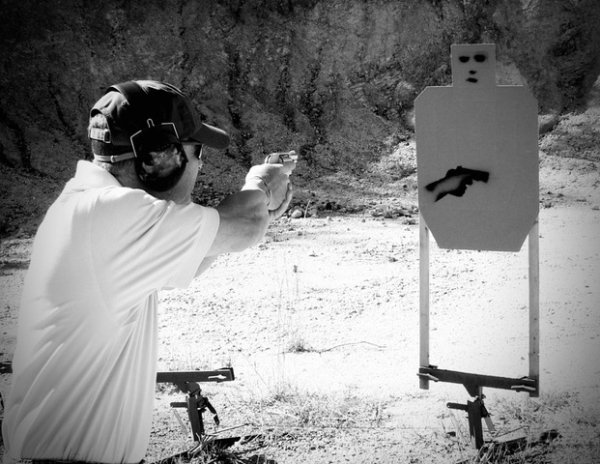
When I talk about training and practice with people almost everyone says, “Oh, yeah, I enjoy shooting.” But, this tells me they’re kind of missing the point. While training and practicing the art of self-defense may involve shooting, it’s a slim slice of the whole pie – and shooting accurately is actually the easiest part of the art. It’s the moving, communicating and using cover, all while thinking about what comes next – decision making – that’s difficult. And to become good at these isn’t going to be fun.
Very few people are willing to develop, and maintain the discipline required to become good at a complex skill. Plus, it takes a big investment of “time,” something which seems to be in short supply with everyone these days. And keep in mind, “good” is a level of competence that’s fairly easy to achieve. To become “outstanding,” or “accomplished” is a much loftier goal; not unattainable, but it takes a much more substantial investment.
The ultimate question is, “How much are you willing to invest?” And we’re not talking financially; skill is not something you can buy. As with any investment you have to look at the payoff. For self-defense the “cost/benefit” is “life/death,” or at least serious injury. If it was as simple as, “Do this or die,” most people would plug into the program. (“Most,” but not all. Some people will continue destructive behavior until death.). The problem is most people “know” they’re not going to be the ones involved in a violent, life-threatening situation. Except, they might be wrong.
“Oh,” they say, “I never go to ‘that’ part of town/after dark/by myself/ …” or any other qualifiers you want to use. The fallacy with this mind-set – and the sooner one accepts this the better - is that “bad” things happen to “good” people every day – and very few of them expected it or knew in advance danger was coming. And when trouble does appear, it’s up to you to solve the problem. Personal protection is an individual responsibility.
Any skill requires training and repetition to achieve a degree of achievement. For the defensive arts there’s also logistical and physical demands. Training means we have to find an instructor to teach us what we don’t know. Nothing about fighting with firearms is instinctual. Practice is where you learn how to apply your defensive skills through repetition. It takes thousands of repetitions to truly learn a skill; even more to chunk several skills together into one package. And repetition by definition is “boring.” Few of us have a range in the backyard, or unlimited supplies of ammo. Luckily the cure for this is dry-practice. There are physical demands; you have to be in decent shape. Not necessarily a tri-athlete but you have to be able to move, use cover and possibly fight your way up off the ground.
In other words, becoming skillful in the defensive arts isn’t going to be fun. Yes, you should take pride in your accomplishments, achieving a certain goal. Positive reinforcement is a good thing. At the same time don’t become complacent with your skill level; we can all get better. Putting the time and effort into training and practice may not be “enjoyable,” but it does have its advantages.
Tiger McKee is director of Shootrite Firearms Academy, which is celebrating its twenty-fifth anniversary. He is the author of The Book of Two Guns, AR-15 Skills and Drills, has a regular column in American Handgunner and makes some cool knives and custom revolvers. Visit Shootrite’s Facebook page for other details.
